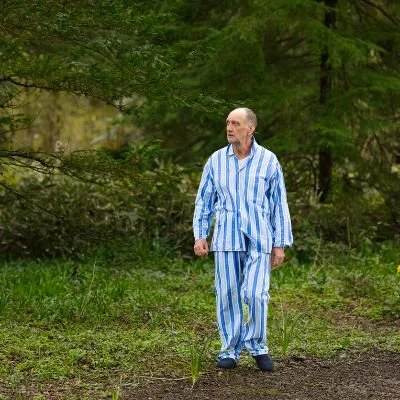Coping with Wandering
Dear Caregivers,
This month we are witnessing a rare celestial event: A visit to earth by two comets at the same time. One of them, Comet Lemmon, is visible from Florida and best seen in the hours right after sunset.
This celestial phenomena are the result of cosmic wandering: A ball of dust and ice from far, far away gets jostled by the forces of gravity, changes direction, and comes hurtling our way. The visit is brief and singular: These comets are not going to pass by earth again for thousands of years.
As I thought about the celestial jolts that contribute to wandering, I found myself thinking about another form of wandering that can impact the safety of a loved one with Alzheimer's disease. Your loved one, perhaps feeling agitated, restless, and disoriented because of the progression of their disease, may suddenly walk out of the house and begin walking through the neighborhood. They may be triggered by memories of the past—thinking that they are going to work, for instance—or believe that they are searching for someone or something that is missing.
Because they are at risk of falling, walking into traffic, or becoming dehydrated or overheated, wandering can pose a very real danger to your loved one. Unfortunately, more than half of the people with Alzheimer’s experience at least once instance of wandering in the course of their disease.
Here are some more tips on coping with wandering from your loved one:
Strategies To Reduce The Risk Of Wandering:
Caregivers or family members may be able to reduce the risk of wandering. Here are some tips for keeping your loved one with dementia safe.
Keeping Your Loved One Safe: Help for Those Who Wander:
Having a loved one wander off is an experience we all try to avoid. However, it is one we must all be prepared for when caring for a loved one with dementia. These community resources can help find your loved one when they have wandered off.
Checklist: Is Your Loved One At Risk For Wandering?
Wandering can be dangerous and even life threatening, making the risk abundantly stressful for caregivers. Here's a checklist.
Remember, if you can’t find the information you need on our website, you can always “Ask NAN” by clicking on this link.
Best,
Rosemary D Laird, MD, MHSA
Founder and Chief Medical Officer
“What is a Wanderess? Bound by no boundaries, contained by no countries, tamed by no time, she is the force of nature’s course.”
— Roman Payne




